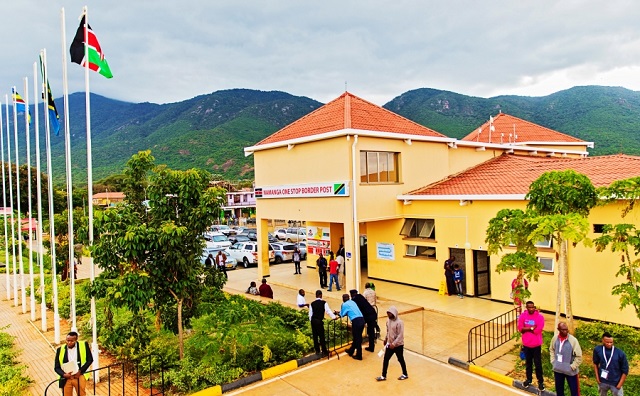
African governments are stepping up efforts to boost domestic resource mobilization
Kampala, Uganda | RONALDMUSOKE | Tax authorities in several African countries were able to recoup up to US$1.9 billion in tax revenues in 2022, thanks to the implementation of information exchange mechanisms, rigorous offshore investigations and voluntary disclosures, according to a report published recently by the Africa Initiative.
The Africa Initiative is a partnership of the Global Forum on Transparency and Exchange of Information for Tax Purposes; 33 African countries and 16 partners, including the African Development Bank, the African Union Commission, the European Union and the governments of Switzerland and the United Kingdom.
The report unveiled in Cape Town, South Africa, during the 13th meeting of the Africa Initiative on July 07, was co-produced by the Global Forum on Transparency and Exchange of Information for Tax Purposes, the African Union Commission and the African Tax Administration Forum, with support from the African Development Bank (AfDB).
The report which includes information provided by 38 African countries, the highest number since the first edition of the report in 2019, shows remarkable developments in 2022 on the two strategic axes of the Africa Initiative: raising political awareness and commitment in Africa and developing capacities in African countries in tax transparency and exchange of information.
Speaking at the opening ceremony of the meeting, Enoch Godongwana, South Africa’s Minister of Finance noted that over the last eight years, the Africa Initiative has changed the tax transparency landscape in Africa.
Godongwana, however, said more could be done, stressing the importance of political will in efforts to increase tax transparency. He called for the Africa Initiative to strengthen African countries’ capacity to leverage exchange of information standards and protocols.
Edward Kieswetter, the commissioner of the South African Revenue Service (SARS) and co-chair of the Africa Initiative noted during the meeting that collaboration was essential to serve the members’ shared ambition for effective resource mobilization. “A tax risk anywhere, is a tax risk everywhere,” he said, “Tax administrations are called to serve a transformative and higher purpose in the interest of society.”
Zayda Manatta, the head of the Global Forum Secretariat, said for the first time, one African country reported collecting additional taxes worth US$ 11.3 million through the use of common reporting standard data.
“The more familiar countries are with this tool, the more they exploit this tool, the more revenue should be collected. And if you manage to monitor this link between revenue collection and exchange of information, we would be able to further demonstrate the benefits countries are getting from this tool,” she said.
Manatta cited a World Bank study that projected that participation in exchange of information mechanisms could increase African countries’ tax revenues from 5% to 19% of GDP.
Domestic tax revenues
The release of the report comes at a time when African governments are stepping up efforts to bolster domestic resource mobilization in the face of economic headwinds that include global inflation and mounting debt levels.
But it also coincides with ever-growing awareness of the challenge of illicit financial flows on the continent. According to the Organisation for Economic Co-operation and Development (OECD), Africa loses as much as US$60 billion each year in illicit financial flows.
In 2019, the African Union Commission estimated that the amount of illicit financial flows from Africa ranged between US$50-80bn annually while estimates from a 2020 report done by the United Nations Conference on Trade and Development (UNCTAD) set the losses at an even higher figure of US$88.6bn or 3.7% of the continent’s total GDP.
Tax justice experts argue that while almost every country faces the challenge of illicit financial flows, the consequences for developing countries are particularly damaging, given their limited resources.
One of the immediate consequences, the experts say, is that it hampers domestic expenditure and investment and translates into fragile infrastructure, insufficient and low-quality education, as well as a lack of public safety provision through adequate police force.
“The international tax transparency standards have proven to be an effective tool in curbing tax evasion and other illicit financial flows and generating additional revenue ready to be invested in the development and provision of public services,” said Gäel Perraud, the Chair of the Global Forum.
Launched in 2014, the Africa Initiative seeks to ensure that African countries are equipped to participate in advances on global transparency, to better fight tax evasion and other illicit financial flows and ultimately improve domestic resource mobilization.
Given the high levels of illicit financial flows from African countries and recognizing the potential of tax transparency and exchange of information to raise resources for development, African members of the Global Forum attending its plenary meeting in October 2014 in Berlin decided to create an Africa-focused programme: the Africa Initiative.
The objective was to unlock the potential of tax transparency and exchange of information for Africa by ensuring that African countries are equipped to exploit the improvements in global transparency to better tackle tax evasion.
 The Independent Uganda: You get the Truth we Pay the Price
The Independent Uganda: You get the Truth we Pay the Price





